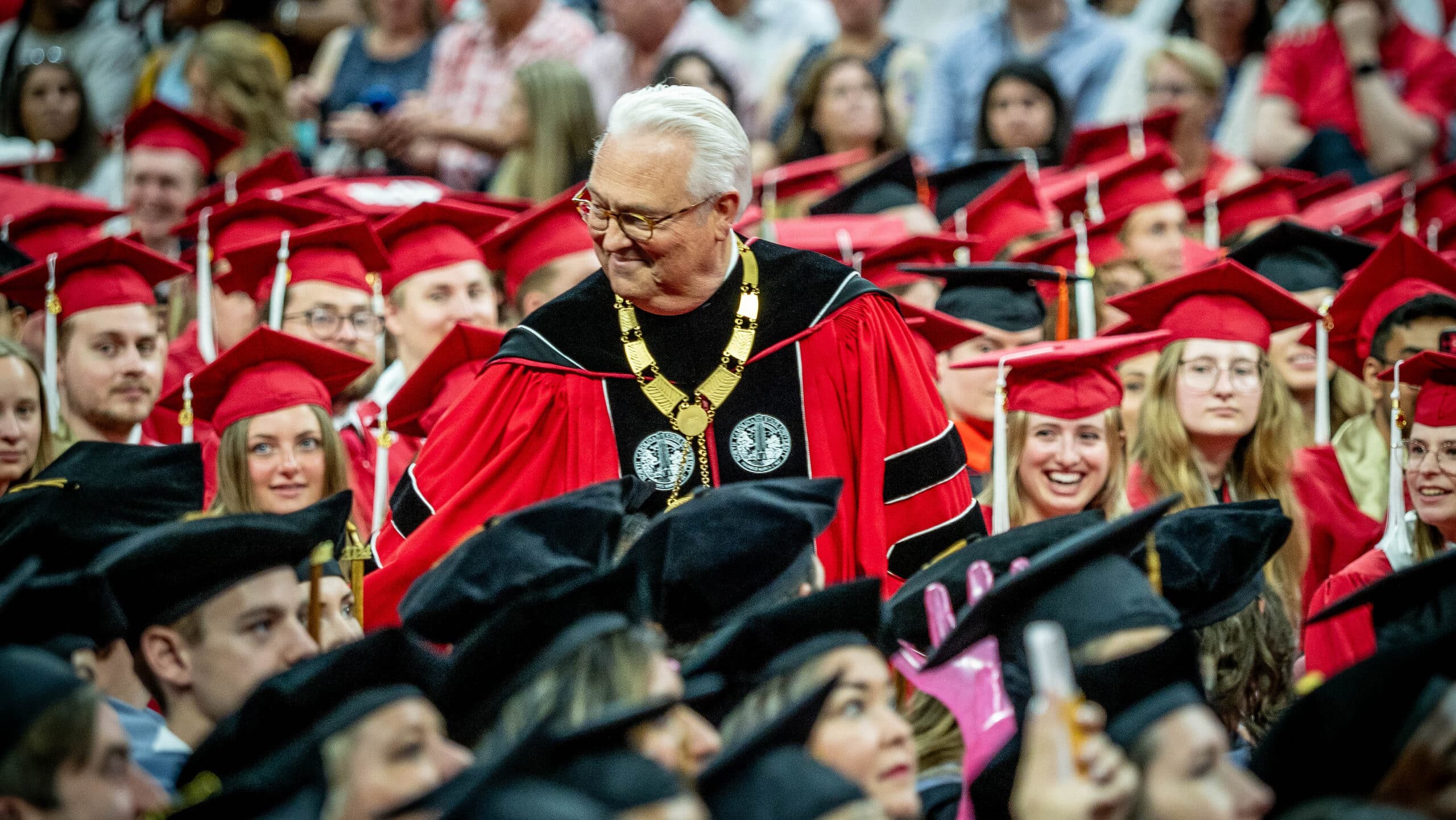NC State Receives Record Gift
Chancellor Randy Woodson announced today that the university has received the largest gift in its history—$40 million—from Lonnie and Carol Johnson Poole.
The substantial part of their contribution, $37 million, funds an endowment to support the College of Management, which is now named the Lonnie C. Poole Jr. College of Management.
“With this transformational gift, it’s a new day for NC State. Today, we send a signal to the rest of the state and to the country that NC State University is prepared to compete on the highest national levels. Donors like Lonnie and Carol Poole understand that this university can and will use their gifts to make a broad impact that is felt well beyond our campus,” Woodson said.
The Pooles’ gift includes $2.5 million to fund the Carol Johnson Poole Club House at the Lonnie C. Poole Jr. Golf Course on Centennial Campus. The Carol Johnson Poole Endowment for Humanities and Social Sciences at NC State will be funded with $500,000 from the gift.
Lonnie Poole is the founder of Raleigh-based Waste Industries USA Inc. He is a longtime friend and supporter of NC State University, where he received his bachelor’s degree in civil engineering in 1959. He is a member and vice chairman of the Board of Directors for the North Carolina State University Foundation and also provided a naming gift for the university’s new golf course.
The Poole College of Management endowment will support development of new programs, student scholarships and fellowships, faculty research and other college development activities, Woodson said.
“This endowment will enable us to advance the college to a new era by expanding and complementing our focus on technology, innovation, entrepreneurship and globalization with a new, strong emphasis in the area of sustainability,” said Ira R. Weiss, dean of the Poole College of Management.
“NC State has long been known for its work in sustainability. As a business college, we understand that sustainability is a critical business imperative. It impacts our society, our economy and, most importantly, the environment. It also impacts the corporate bottom line.
“We need to educate future leaders to view sustainability—and environmental impact—as complementary to innovation and entrepreneurship, and to show that it is not only socially responsible but that it makes good business sense, and must become a core value. Technology will play a huge role in sustainability innovation, and we here at NC State and in Research Triangle Park are in a great place to adopt sustainability and environmental impact as an ethical component of building future businesses.
“This endowment also will allow us to compete for new faculty and to retain current faculty through recognition of leadership and seed funding for research.”
- Categories:


